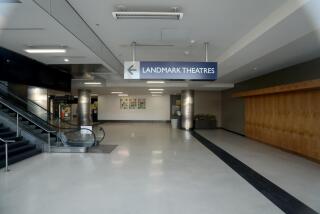NORTHRIDGE : Aid Center for Asians Lifts the Barriers
- Share via
Michelle T. Tran lost her job when the Chatsworth beauty salon where she worked was devastated by the earthquake.
With only the income from her husband, a computer technician, the Tran family was not able to make rent on their Reseda home this month.
A woman of limited English skills, Tran said she learned about government aid for earthquake victims a few days ago from a Vietnamese-language flyer.
The flyer directed her to a federal disaster aid center established Sunday to help Asian American earthquake victims at the Chinese Christian Alliance Church in Northridge. The temporary center closed Tuesday night after helping about 150 applicants, most of them Vietnamese and Chinese, according to center Manager Virginia Asbelle.
People who came to the site were matched with an interpreter who accompanied them through the entire process of applying for assistance. Interpreters were available for a wide array of Asian languages, including Vietnamese, Mandarin, Cantonese, Taiwanese, Tagalog and Korean.
In addition to FEMA grants, earthquake victims were able to apply for individual family grants--to replace lost personal property--and Small Business Administration disaster loans at the center. Aid officials also gave people a list of telephone numbers they could call for other types of aid, such as legal services or contractor licensing information.
“It’s very nice if they bring Vietnamese people here to work for us,” said Tran, who sat at a table waiting for an interpreter. “I (feel) more easy.” Her two daughters, ages 10 and 13, sat nearby, drawing pictures.
Many Asian immigrants have been reluctant to seek help at other disaster centers because of the language barrier, their unfamiliarity with the American system and a cultural aversion to seeking outside help, church and community officials said.
That’s one reason why it has been difficult to estimate the total number of Asian Americans affected by the quake, said Hiroshi Yamaguchi, vice chairman of the Asian Pacific Islander Council of the San Fernando Valley, one of the groups that helped to establish the center.
“It is hard to identify people because they are being helped by their relatives,” Yamaguchi said. “They don’t come out on their own. That’s a cultural trait. Self-help is their cultural training.”
More to Read
Sign up for Essential California
The most important California stories and recommendations in your inbox every morning.
You may occasionally receive promotional content from the Los Angeles Times.









